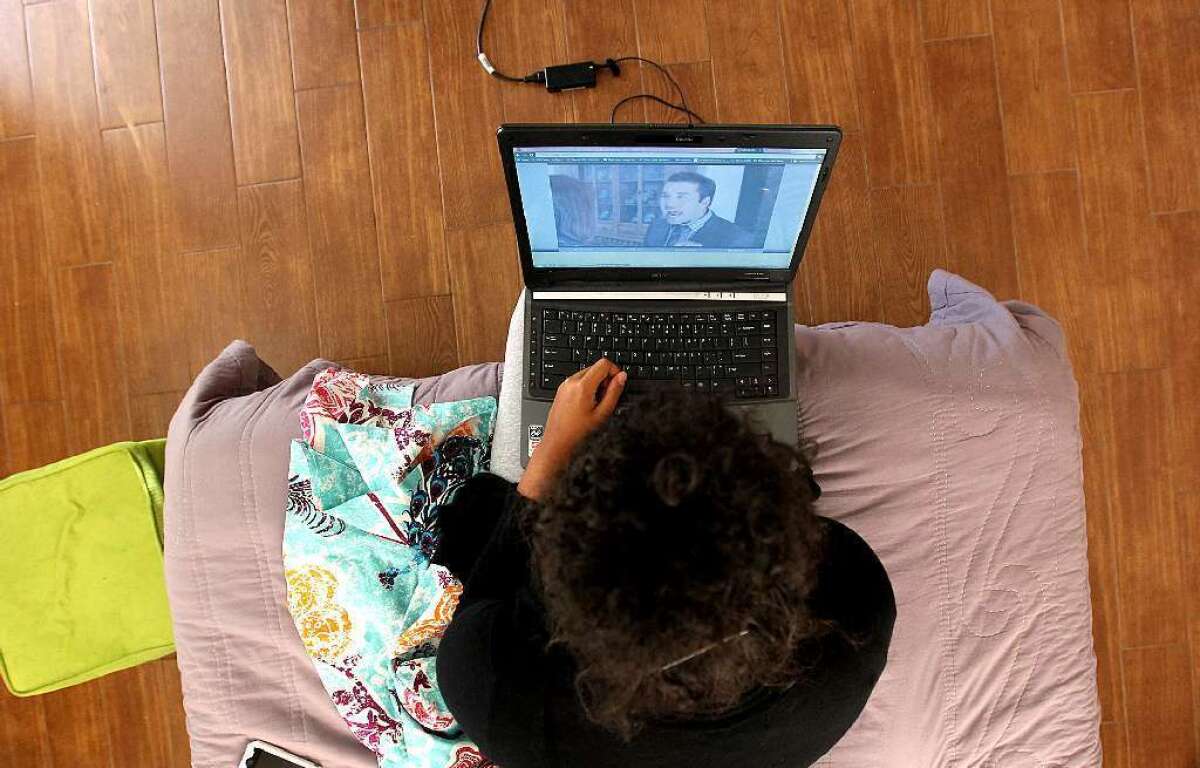Editorial: Congress should bring copyright law into the 21st century

- Share via
Congress updated copyright law in 1998 to address the nation’s shift from analog devices and packaged goods — think turntables and vinyl records — to computers and e-commerce. Unfortunately, the law it wrote has proved to be a better fit for a dial-up era dominated by America Online, not broadband and the World Wide Web. The tools the law created to protect songs, movies, pictures and books from piracy have been no match for the rampant global bootlegging that new technologies have unleashed. At the same time, innovative entrepreneurs eager to help consumers create, store or share content online complain that the law left too much uncertainty over whether they could be held liable when their users violate copyrights.
These are valid complaints, but Congress isn’t likely to address them any time soon because there’s no consensus among copyright holders and tech companies on how to rewrite the law. The only help from Washington at the moment is a new effort led by the U.S. Patent and Trademark Office to broker a deal between the tech and copyright industries on voluntary measures to reduce piracy. Although it won’t be easy for them to agree, there are steps both sides could take to make the existing system work better.
In exchange for immunity against lawsuits, the 1998 Digital Millennium Copyright Act requires Internet sites and services to take down files or links that copyright holders tell them were uploaded without permission. For example, if someone records the last five minutes of an NCAA basketball tournament game on television, then posts the clip on YouTube, the NCAA could send YouTube a takedown notice demanding that the clip be removed. YouTube has to comply promptly with such requests to retain is shield against liability.
The courts have consistently ruled, however, that online companies have no duty to prevent pirated works from being uploaded or to monitor their sites for infringements. Instead, it’s up to copyright holders to find infringing files and ask that they be removed, one file or link at a time — even if there are multiple copies on the same site. And if the work is uploaded again, the site doesn’t have to remove it until the copyright holder sends another takedown request. Those limits have frustrated entertainment companies and publishers that are struggling to remove the huge quantity of bootlegged files available online. A single music site, for example, might offer access to multiple copies of thousands of pirated songs, all of which can be easily found through Google.
It’s appropriate that content owners bear the responsibility for enforcing their copyrights; after all, they’re the only ones who know for sure whether an upload was authorized. But the notice-and-takedown system isn’t much help against foreign sites that ignore takedown notices or neuter them by rapidly re-posting pirated files. One potential answer is for search services (e.g., Google) and copyright owners to find a way to allow the rapid removal of an extremely large number of links to sites that are offshore piracy hotbeds, cutting off much of their traffic. The challenge is to ramp up the takedowns without overwhelming sites with notices or removing links that aren’t infringing. Some copyright holders have generated blizzards of takedown notices with bots that can’t distinguish between fair uses and illegal copies. But this concern is less relevant when the targets are foreign sites designed to profit from bootlegged goods, and both challenges lend themselves to technical solutions. For example, a system that targets only full-length songs, books and movies is far less likely to remove legitimate files, such as online reviews that include samples of a work.
Online companies and their advocates often argue that trying to take down or hide bootlegs isn’t as effective as making legal versions of popular files easy to find and afford. And they’re right — a crucial component of any anti-piracy effort is for copyright holders to support compelling legitimate services that can compete with infringers in the marketplace. But tech companies have a part to play too. The current notice-and-takedown system is burdensome for them as well, so it makes sense to try to develop a more efficient one that helps copyright holders root out large-scale infringement without driving up compliance costs for online sites and services.
More to Read
A cure for the common opinion
Get thought-provoking perspectives with our weekly newsletter.
You may occasionally receive promotional content from the Los Angeles Times.










